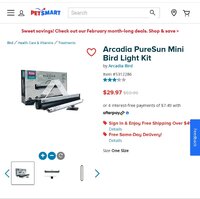Do not use UVB bulbs for birds! They can damage their eyes, especially ones made for reptiles, and they don't need them! There is some good info here
The truth about artificial light compared to natural light
Normal lighting is fine. Birds get the vitamin D they need from a good pellet/supplement,
not artificial lighting. I use a light that mimics the color range and brightness of sunlight, NOT because it supplies UVB/UVA.
If used incorrectly, UV lights can harm any animal. While UV light isn't necessary for survival, it improves quality of life. The article you linked had some assumptions that I noticed, mainly that all UVB bulbs are the same and are manufactured for diurnal desert reptiles when in fact there is an extremely wide variety of UV lighting. (It also seemed to be mainly focused on "full spectrum lighting" which is indeed often a marketing ploy, rather than focusing on UV lighting itself-- though one of the links in the article led to a vet article that actually did recommend UV lighting). Nowadays there is even extremely low-level UV lighting made for crepuscular animals to allow them natural behaviors such as cryptic basking, or in the case of crepuscular hot climate animals, actual daytime basking. As a reptile owner I can tell you UV improves the life of many animals marketed as not needing any UV, because they do use it occasionally in the wild.
My main concern is not the synthesis of vitamin D, as my budgie is on a good quality pellet that contains vitamin D supplement. What I want is to make him happier-- most birds, including budgies, see differently under UV light than we do as they have tetrachromatic vision compared to our trichromatic vision. Budgies in particular have certain feathers that fluoresce under UV light which helps in choosing mates, and possibly foraging and other natural behaviors. My budgie is not very active and uninterested in toys-- even before my older female passed away he was not nearly as active as her and preferred to sit in one spot. I'd like to try providing him with low level UV lighting to see if his mental well-being improves as all birds are different and some need a little more help to be happier in captivity. As mentioned above, it would be a low level bulb and only over part of the cage, with most of the cage being lit by a normal LED room light and even an area that is covered by a blanket as well. The positioning of the bulb would also be careful, with it being high enough to ensure the light is not shining into his eyes, and farther away so the level of UVB reaching him is very low (around 1.0 to 2.0). I'd also only be leaving it on for a few hours to test if the bird would actually use it, and to ensure it's safe. If I lived in a warmer climate I'd bring him outside in a travel cage a couple days a week or to a room with an open screened window, but unfortunately that's not feasible right now.
A lot of people who have harmed their animals with UV lighting were using dangerous methods. I was shocked to see some of the bulbs people had used for birds-- one post that showed a bird with burns on it had been using an extremely powerful bulb meant for bearded dragons that a lot of reptile owners wouldn't even recommend to each other. UV lighting can be very dangerous, so it's important you're using a good quality bulb that's been tested for output as well as positioned in a way that is not dangerous. For lots of people it's too risky and that's fine, because yes, it absolutely can be dangerous. But for some birds, it can be really beneficial.
Do birds
need UV light? No, they can survive fine without it, and some can even be harmed by it. But if you do careful research, consult an avian vet, and implement a good quality, very low level bulb over only part of the cage, it can provide benefits to some birds. So yes, I am going to try providing UV lighting for my bird. If he's not using it or acts distressed, I'll remove it, but it's worth a try to see if it improves his quality of life.




